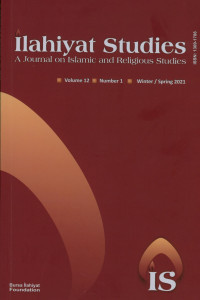Holy War in Judaism: The Fall and Rise of a Controversial Idea by Reuven Firestone
First paragraph: Admirers of Reuven Firestone will not be disappointed with this book, and its intriguing title and subtitle accurately outline its main thesis. There is indeed a theory of when war is allowed and indeed compulsory in Judaism, and it developed out of the Bible and the texts connected to it such as the Apocrypha, and most significantly the commentaries of the Mishnah and the Talmud. Yet since the commentary stage occurred so late in the day, comparatively speak-ing, what it had to reflect on was not so much the glories of con-quest at divine command of the Holy Land, but the bitter defeats at the hands of the Romans and the total devastation of the Jewish polity in what could loosely be called Israel. Firestone suggests that this gave rise to the idea that talking about violent resistance to enemies, let alone war, was a very dangerous enterprise and not to be sanctioned except in very exceptional circumstances. It went along with the very special status of living in Israel, which was in theory desirable but in practice was so full of difficulties that many rabbinic authorities seemed to discourage it. Although the Bible itself is full of references to the Land of Israel and its ownership by the Jews, when this was no longer feasible the idea of living in Israel, and certainly the idea of fighting others in order to live there, became largely irrelevant. As Firestone comments, a long debate was set off by Maimonides and his predecessors, and his rather dismissive remarks about the significance of Israel and the idea of fighting to live there, by contrast with the later Nahmanides who not only set out to refute Maimonides but even moved to Israel himself, with not entirely happy consequences. For Nahmanides living in the Land is of im-mense significance for Jews, and any obstacles that are in the way must be removed, sometimes violently if necessary.
Holy War in Judaism: The Fall and Rise of a Controversial Idea by Reuven Firestone
First paragraph: Admirers of Reuven Firestone will not be disappointed with this book, and its intriguing title and subtitle accurately outline its main thesis. There is indeed a theory of when war is allowed and indeed compulsory in Judaism, and it developed out of the Bible and the texts connected to it such as the Apocrypha, and most significantly the commentaries of the Mishnah and the Talmud. Yet since the commentary stage occurred so late in the day, comparatively speak-ing, what it had to reflect on was not so much the glories of con-quest at divine command of the Holy Land, but the bitter defeats at the hands of the Romans and the total devastation of the Jewish polity in what could loosely be called Israel. Firestone suggests that this gave rise to the idea that talking about violent resistance to enemies, let alone war, was a very dangerous enterprise and not to be sanctioned except in very exceptional circumstances. It went along with the very special status of living in Israel, which was in theory desirable but in practice was so full of difficulties that many rabbinic authorities seemed to discourage it. Although the Bible itself is full of references to the Land of Israel and its ownership by the Jews, when this was no longer feasible the idea of living in Israel, and certainly the idea of fighting others in order to live there, became largely irrelevant. As Firestone comments, a long debate was set off by Maimonides and his predecessors, and his rather dismissive remarks about the significance of Israel and the idea of fighting to live there, by contrast with the later Nahmanides who not only set out to refute Maimonides but even moved to Israel himself, with not entirely happy consequences. For Nahmanides living in the Land is of im-mense significance for Jews, and any obstacles that are in the way must be removed, sometimes violently if necessary.
